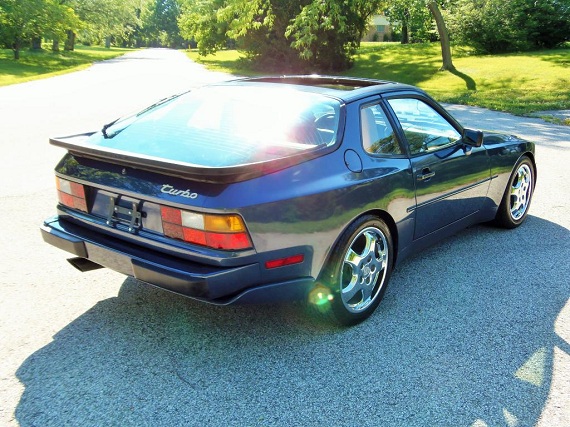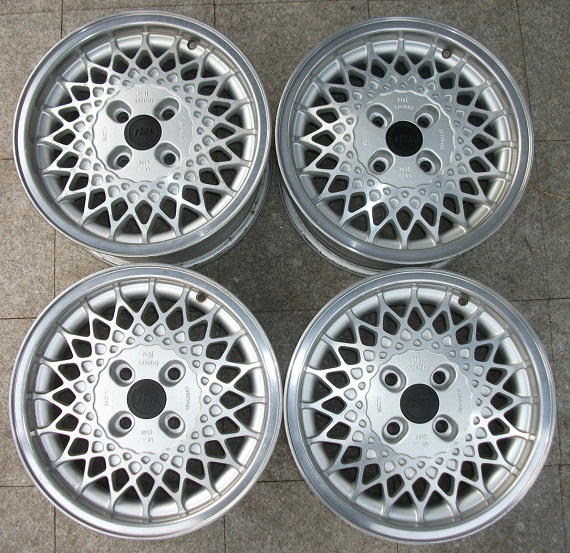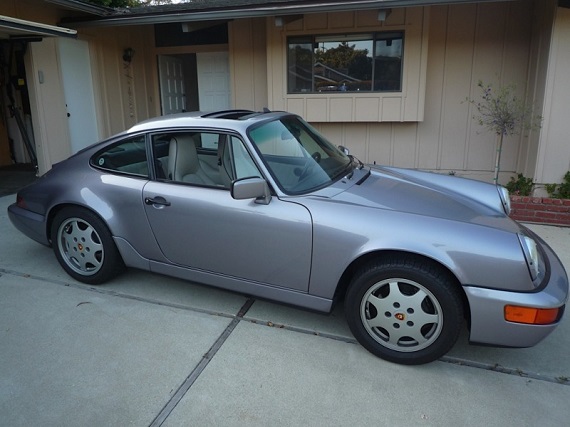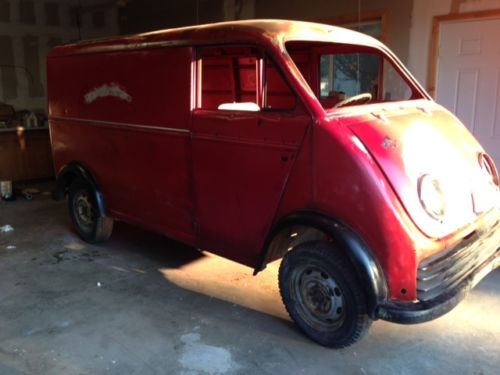Everyone wants a perfect car, let’s be honest. But I often feel that I could accept a reasonable amount of flaws to have a car that I felt completely comfortable driving. Make that car a classic Porsche, and you’d still be talking big bucks, right? Well, not so fast – if you look around, you can still get some remarkable deals on 944 Turbos, one of the best driving cars from the 1980s. Present that car in the rare shade of Nautic Blue with tan leather, and you’ve got one heck of an understated looker with performance to back up the badge. Would you drive it?
Month: July 2014
I have a bit of a mixed bag for you this week – from period Tuner wheels to some that are more meant for dreams and Christmas wishes. The Rial cross-spoke wheels aren’t normally what you’d think of when you think of basket weaves, but they’re period correct for your mid-1980s Audi or early 924. The Momo wheels aren’t everyone’s bag, but they were a period wheel that was a very expensive option – as were the 17″ Style 10 wheels if you’re looking for something a bit more OEM. Those Porsche Speedline Ruf wheels are some of the best looking every made, and I’ve always loved the wheels on the McLaren SLR – even if they’re solidly out of reach of even my entire car budget. What’s your favorite?
CLICK FOR DETAILS: Rial Cross-Spoke Audi 80/90 15×7 4×108 Wheels on eBay
2 CommentsOver time the 964 has grown on me quite a bit and right now they might just represent some of the best values on the 911 market. While a 996 likely still stands as a better performance value, the 964 clearly looks like it will hold, and increase, its value over time to a greater degree than seems likely with the 996. However, the time for a 964 serving as a good value may be short lived and the car we see here would probably not be the first choice of a value-seeking buyer. Nonetheless, this Diamond Blue Metallic 911 Carrera 2 Coupe, located in Santa Barbara, should make an interesting option for any 911 enthusiast and while it could make for a good collector it already has enough miles on it that its new owner should be able to enjoy driving it fairly often as well.
CLICK FOR DETAILS: 1990 Porsche 911 Carrera 2 Coupe on Pelican Parts Forums
3 CommentsIf you walked up to a stranger on the street and said “would you buy a 1991 Audi with 227,000 miles for $6,000”, I’d guess nearly every response would be a hearty laugh. But then, if you asked the same question but instead of the Audi and $6,000 it was a 1970s Porsche and a million dollars, you’d probably get the same laugh. Car valuations are so difficult, because within them lies desirability, condition, and sometimes childhood dreams. I still remember the James Bond movie where the baddie-turned-goodie-but-still-baddie was whisked away from the border guards tucked in the back of a 1991 Audi 200 20V quattro. I was, at the time, a teenager and didn’t really have much of an idea what the 200 was at that point. When I finally bought my Audi, I understood a bit more – it was a luxury sedan with the heart of a World Rally champion, a car whose dual nature few could manage at the time. High speed Autobahn cruiser? Check. Quiet, civilized luxury car? Yes, that too. Spirited on back roads? That could be said about the 200, but so could it about the BMW M5. What set the Audi apart at that time was the combination of the turbocharged engine with the quattro all-wheel drive system, allowing this performance to occur in just about any condition. That made the quattro a ski-trip vehicle as well. With handsome looks, the lightly flared 200 was also a racer, competing in the North American IMSA series as doing quite well for such a large, production based car. While not quite the jack of all trades, one can appreciate what a special package the Audi 200 20V was, and still is:
CLICK FOR DETAILS: 1991 Audi 200 20V Quattro on eBay
10 CommentsMost German car enthusiasts are no longer familiar with the name “DKW”. It’s a shame considering the long history of DKW, whose name originates from the German words for “steam powered vehicle” – just to give you a sense of the time period they started out. DKW reached its zenith in the 1930s, a time when Germany was experiencing massive growth in its economy and Hitler wanted to turn the Fatherland into a nation of drivers. Ironically, despite his notable efforts supporting Grand Prix racers and the development of the Beetle, pre-War automobile ownership in Germany was amongst the lowest in all of Europe. They were, rather, a nation of riders – motorcycles, to be precise, buying more of the two-wheeled transport than anyone else in Europe. It was what gave companies like BMW a start, for example, but the most successful of all of the pre-War motorcycle companies was DKW. Upon joining the Auto Union in 1932, they began experimenting more with small cars. But the aftermath of World War II meant that the area that DKW, Audi and Horch – 3/4 of the Auto Union company – were stuck in Soviet controlled areas, most of the factories being disassembled and sent back further behind the Iron Curtain as war reparations.
The result was that in the late 1940s and early 1950s, new efforts to resurrect these names was attempted. It’s not very surprising that the attempts were made; after all, imagine if Chevrolet went out of business due to a War; you can bet once things were cleaned up, someone would try to make a Corvette. And sure enough, based upon some pre-War designs the F89 was born. As with most post-War cars in Germany, it was small, affordable and versatile. DKW utilized the platform to create what was, in essence, the first modern minivan. With a space-saving transverse motor driving the front wheels, there was ample room for flexible seating in the rear. Outside was a reasonably aerodynamic, compact design and the small motor ensured reasonable fuel economy – though no promise of speed. Today, nearly 70 years after the design was first sketched out, finding these vans is extraordinarily hard – and when they surface in the U.S., they’re typically not in particularly good shape:




